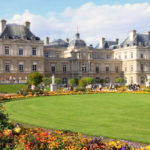
Map of the Republic of Ireland with the flag of the Republic of Ireland on it by Stasyan117. WIKIMEDIA60
Famous 19th-Century Irish Politicians
During the 19th century, Ireland Was part of the United Kingdom of Great Britain and Ireland between 1801 to 1922. The UK government governed Ireland through its parliament and the Dublin Castle administration in Ireland.
During the 19th and early 20th centuries, Ireland witnessed a campaign for Irish Home Rule from different politicians. The Home Rule was eventually achieved.
Below are some of the famous 19th-century Irish leaders.
1. William de Burgh
William de Burgh was born in 1741. His father Thomas Burgh was a Member of Parliament for Lanesborough. He was also a landowner in County Kildare.
William De Burgh began his career as a politician in 1769 when he represented Athy, in the Irish parliament until 1776.
De Burgh was a strong supporter of the right to political expression and opposed the French Revolution. William was also among the Irish leaders who opposed it.
While still a member of Parliament, he supported his friend William Wilberforce, who was leading a movement against slavery.
2. Henry Bruen

Henry Bruen. Author https://archive.org/details/foundersbuilders00whit. WIKIMEDIA
Colonel Henry Bruen was born in 1768. He was the son of Henry Bruen and Dorothea Henrietta Knox.
During the 1812 general election, he won the Carlow county Parliamentary seat.
For the next three general elections, he won unopposed. In 1835 he lost his Carlow seat and a by-election was held.
However, he was re-elected and returned to Westminster. His father-in-law was also elected.
In 1837, he lost his seat but was re-elected in 1940 after the death of Liberal MP Nicholas Aylward Vigors. Henry died while still in his office.
3. Heophilus Blakeney
Theophilus Blakeney was an Irish politician born in 1730. His parents were John Blakeney who also served as a member of Parliament and his mother was Grace Persse.
Theophilus followed in his father’s footsteps and served Athenry as a Member of Parliament from 1768 to 1776 and also from 1783 to 1799.
4. Isaac Butt

Portrait of Isaac Butt. Author John Butler Yeats. WIKIMEDIA
He was born in Ulster, Northern province of Ireland in 1813. His family lived in Glenfin district in Finn Valley, Donegal county
In the house of Commons of the United Nations, Butt served as a member of Parliament. He was also the first leader of various Irish parties and organizations.
In 1836, he served as an Irish Metropolitan Conservative Society leader. In 1870, he served in the Home Government Association and also in the Home Rule League in 1873.
5. Edmond Roche
Edmond Roche was the son of Edward Roche and Margaret Honoria Curtain. He was born 1815 August 9 in County Cork, Ireland. Edmond Roche was named after his distant relative Edmund Burke
Edmond Was an Irish politician and he was honored with a title in the Peerage of Ireland while still serving in the British parliament.
Edmond died in 1874 while still at his home Trabolgan House, Cork County. At his time of death, he was 59 years old.
Edmond was buried in a mausoleum graveyard in Corkbeg County Cork.
6. William Vesey-FitzGerald
His parents were FitzGerald James FitzGerald and Catherine. He attended Christ Church in Oxford. William’s father had a descent both from Old English and Gaelic Irish.
Vesey was one of the best Irish statesmen, he served both in Lord Wellington and Robert Peel’s government. He was popularly known for his defeat in the 1828 by-election where he hastened Catholic Emancipation all over Britain and Ireland.
He died at the age of 59, while unmarried. His death negatively affected the existence of the barony of 1835.
His younger brother Henry. Lord FitzGerald took over his Irish title.
7. James Fitzgerald
He Was one of the best Irish politicians who descended from a White Knight family. His father was the attorney of Ennis. His elder brother Maurice Fitzgerald was a Clerk of the Crown for Connaught.
In 1835 at the age of 93, James Fitzgerald died at Booterstown.
8. John Gray

John Gray. Author. WIKIMEDIA
As the third son of John and Elizabeth, he was born in Claremorris, Mayo County.
Gray attend Trinity College in Dublin, where he attained a degree of M.D. In 1839 he obtained a Master’s in Surgery at Glasgow University.
At a young age, he officially started his career in politics where he associates himself with O’Connell’s Repeal Association.
Throughout his life, Grey participated both in municipal and national government.
Gary worked at a Freeman’s Journal, he led Dublin Corporation Water Works Committee as a chairman and later as a Member of Parliament in the House of Commons of the United Kingdom until his death.
In 1875 Gary died at a Bath In England. His achievements were highly recognized due to the benefits they brought to the people. A statue on O’Connell street was erected in memory of Gray.
9. Samuel MacCurdy
Samuel MacCurdy Greer’s parents were Rev. Thomas Greer who was the Presbyterian minister of Dunboe, and Elizabeth Caldwell. Samuel was born at Springvale near Castlerock, Londonderry County in 1810. He was enrolled at Belfast Academy and later Glasgow University. In 1833 he was called to the Irish Bar.
He was one of the best Irish politicians, he championed Presbyterian representation and tenant rights. Samuel led Ulster Tenant Right Association and the Ireland Tenant Right League where he was the co-founder.
10. Patrick Hennessy
Patrick Hennessey played a different role in Ireland, he served as an Irish trade unionist and also as a political radical.
Between 1869 and 1873 Patrick served as a President of the Land and Labour League. While serving as the president he started the Metropolitan Home Rule Association. He also oversaw and actively participated in the establishment East End-based Labour Protection League.
11. Lucius (McEdward) O’Brien, 13th Baron Inchiquin
Lucius was born in 1800 in Dromoland Castle. He was the son of Sir Edward O’Brien, the 4th Baronet, and Charlotte Smith.
In 1825Lucius was enrolled at Trinity College, Cambridge where he graduated with a B.A. He officially joined politics in 1826 as a member of Parliament for Clare when he replaced his father.
In 1830 he was defeated by Whig candidates. In 1835, he contested for the seat again but he was appointed as a High Sheriff of Clare. Lucius was appointed as Lord Lieutenant of Clare after the death of his father.
During the 1847 general election, Lucius won by defeating Cornelius O’Brien.
12. Colonel Richard Martin
Colonel Richard Martin was born in 1754 and became an Irish politician. Throughout his political career, he campaigned hard against cruelty to animals.
He received a nickname from King George IV as “Humanity Dick”. This was because he campaigned against animal cruelty.
He was popularly known, especially for his efforts against bear baiting and also dog fighting. He tried his best for the anti-cruelty bill passed.
13. Sir William McArthur
Sir William McArthur was born in 1809. McArthur was an Anglo-Irish businessman, he was also a liberal party politician and Lord Mayor of London.
During the 1885 general election, McArthur vied as an independent candidate but performed poorly. McArthur had an interest in reforms and social organizations. This included the “Orphan Working School of Haverstock Hill and Hornsey Rise, and the Aborigines’ Protection Society.”
At an age of 78 years, McArthur died and was buried at Norwood cemetery
14. Richard Colley Wellesley
Richard Colley Wellesley was born in 1760. He was an Anglo-Irish politician as well as a colonial administrator.
He became the 2nd Earl of Mornington when he succeeded his father in 1799. The same year Richard was given an Irish peerage title, Marquess Wellesley.
Between 1798 and 1805, Richard served as the fifth Governor-General of India. He also served as a lord Lieutenant of Ireland and as a Foreign Secretary in the British Cabinet.
During an invasion by his forces in 1799, to Mysore, he managed to defeat Tipu, who was the Sultan of Mysore. Richard was also the Mastermind behind the Second Anglo-Maratha War.
15. William Petty Fitzmaurice
William Petty Fitzmaurice was born in 1737. He was popularly known as Earl of Shelburne. William was Irish-born British statesman.
In 1782, he was the first home secretary. He served as a prime minister between 1782 and 1783, his era came during the final days of the American War of Independence.
One of his major achievements was the peace he managed to secure with the Americans.
16. James O’Mara

James O’Mara during a speech. Author Agence Rol. WIKIMEDIA
James O’Mara was formerly known as O’Meara. He was born in 1817. James served as a nationalist politician who was a champion of peace and also a businessman in Limerick.
During the Butt’s Hime Rule Movement in Ireland, he was a strong supporter together with his son Stephen as a member. Due to his services to the movement, he was successfully promoted to the election for Limerick during the 1871 by-election.
In 1887, James became the Limerick Poor Law Guardian when he served as a High Sheriff of Limerick City.
During the ceremony of unavailing the Manchester martyrs in 1867, he received an Irish-American Fenian who delivered an oration during the ceremony.
Between 1888 and 1889, O’Mara served as a Town Councillor and also served as a member of, “The Limerick Harbour Commissioners, a Governor of the Fever Hospital, and a Trustee of the Limerick Savings Bank.”
He declined to serve as a mayor after his nomination. Instead, James remained a strong supporter of Justice of the Peace until he died in 1899.
17. William Smith O’ Brien
William Smith O’Brien was a young Irish nationalist Member of Parliament born in 1803. He also served as a leader and a volunteer at the Young Ireland Movement.
In 1848, Due to his involvement in the Young Irelander “Famine Rebellion”, he was convicted and sentenced to death because of sedition.
However, instead of his death sentence, William was deported to Van Diemen’s Land. He was later, in 1854, exiled from Ireland where he opted to live in Brussels, he stayed in Brussels for two years.
He returned to Ireland in 1856 following his pardon. Smith, however, remained dormant in active politics.
18. John Freeman-Mitford
John was born in 1805, in Dublin. His father was John Freeman-Mitford, 1st Baron Redesdale.
John attended Eton and New College, Oxford.
In 1830, when his father died, he became the second baron, and he participated little in the affairs of the house of lords. However, in 1837, John started developing an interest in the details of parliamentary bills.
For him to qualify for various committee chairmanship, he was advised by Wellington to study the private business of the house. In 1851, Redesdale became Jonh’s successor after his resignation.
19. James Humphrys
James Humphrys who was popularly known as the Squire was born in 1805. He served as a poor law guardian. He was also a farmer in Glenstal and Boher, County Limerick.
John Humphry attained his education educated at a hedge school.
20. Patrick Hennessy
Patrick Hennessey was among the best Irish trade unionist. He also served as a political leader in Ireland.
Between 1869 and 1873, Patrick became the President of the Land and Labour League. During his tenure, he established the Metropolitan Home Rule Association, he also took part in the formation of the East End-based Labour Protection.

 English
English








